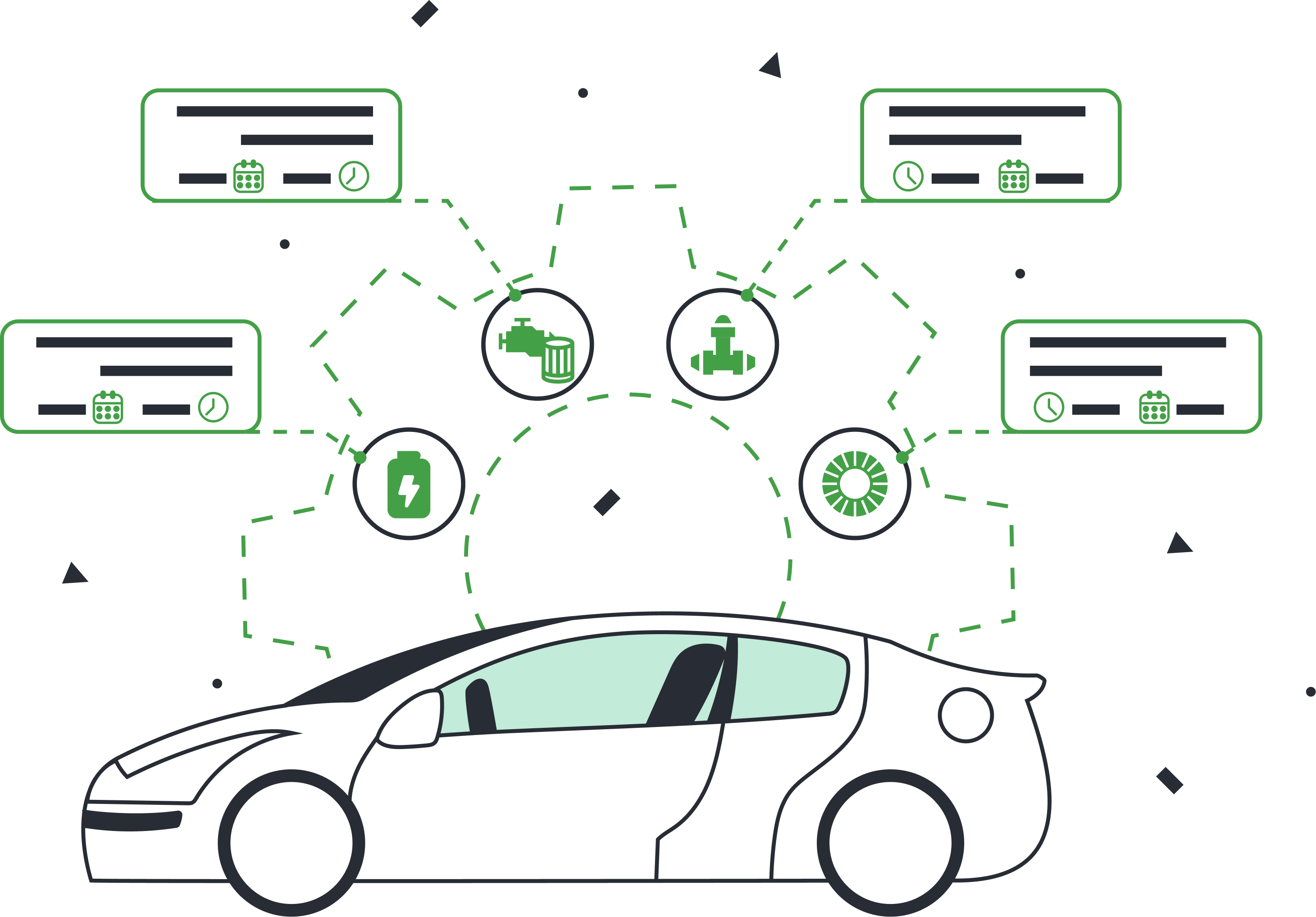Service History
API
Comprenda el historial de servicio de un vehículo
Nuestro punto final del historial de servicio permite a los desarrolladores acceder a los datos sobre las citas de servicio anteriores de un vehículo, incluidas las notas de costos y servicio.

Cómo utilizan las empresas el historial de servicio
Talleres de reparación independientes
Comprenda el mantenimiento previo para programar mejor el servicio futuro y ver cuándo se revisó por última vez un vehículo y para qué.
Seguro de automóvil
Establezca tarifas precisas en función del historial de servicio del vehículo y del mantenimiento del vehículo.
Concesionarios de automóviles
Acceda a informes de servicio detallados para ver el mantenimiento anterior o los problemas de un vehículo. La valoración mejorada y los datos históricos precisos permiten fijar precios basados en datos y tasas de préstamo competitivas.

Historial de servicio
Recupera los registros de servicio rastreados por el concesionario del vehículo o agregados manualmente por el propietario del vehículo.
Características del producto
Compatible con 39 marcas de automóviles
Flujo de consentimiento de usuario amigable
Funciona en vehículos de 2015 y más recientes
Fiable y seguro
Acceso a datos de vehículos en tiempo real
SDK para Go, Java, Node.js, Python y Ruby
Industrias relacionadas
Gestión de flotas
Ofrezca comprobaciones automáticas de la vida útil del aceite del motor como parte de su software de gestión de flotas y productos de mantenimiento predictivo.
Servicios bajo demanda
Invite a los clientes a programar una visita de mantenimiento cuando el aceite del motor de su vehículo llegue al final de su vida útil recomendada.


.jpg)

